Learn about the EPA’s groundbreaking decision to set federal limits on PFAS, harmful chemicals commonly found in drinking water, and its implications for public health.
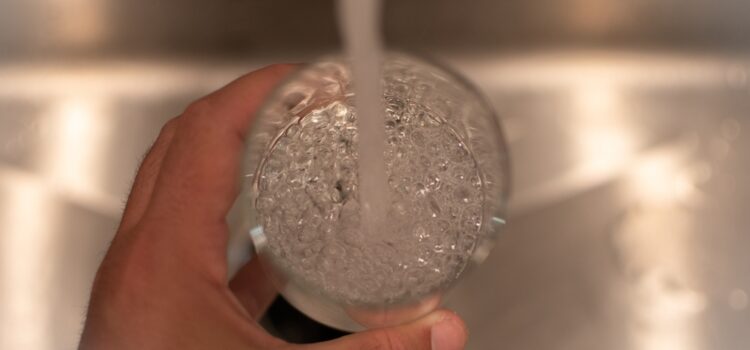

Learn about the EPA’s groundbreaking decision to set federal limits on PFAS, harmful chemicals commonly found in drinking water, and its implications for public health.
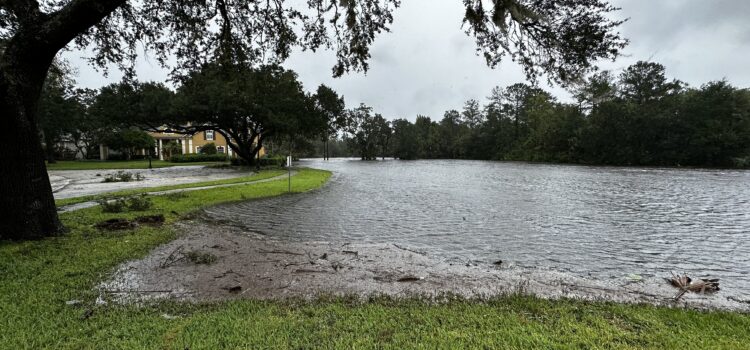
Commissioner Victoria Bruce discusses the essential sediment removal project underway in Winter Springs, aimed at ensuring the health of our water systems and preventing potential flooding.
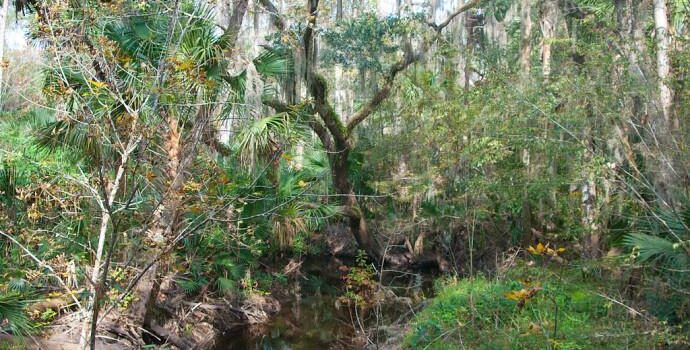
The city is currently seeking to obtain the services of a qualified vendor to excavate sediment and accumulated debris from nine (9) creek roadway crossing locations throughout the City of Winter Springs.
The roadway crossings are located along Sheoah Creek, Gee Creek, Howell Creek, and Bear Creek. This project is intended to restore functionality and aid in the unobstructed conveyance of stormwater.
Based on the site inspections, multiple sediment deposits were identified at roadway crossing / bridge locations throughout the CITY of Winter Springs. The sediment deposits are a result of erosion that occurred upstream of the bridge location and washed downstream. These sediment deposits are reducing the hydraulic capacity of the creeks, culverts, and bridges.
The project is intended to restore the functionality of creek areas, to aid in conveyance of stormwater runoff, and reduce the potential flooding of adjacent properties. The work will consist of removal of sediment deposits and accumulated debris within the creeks.
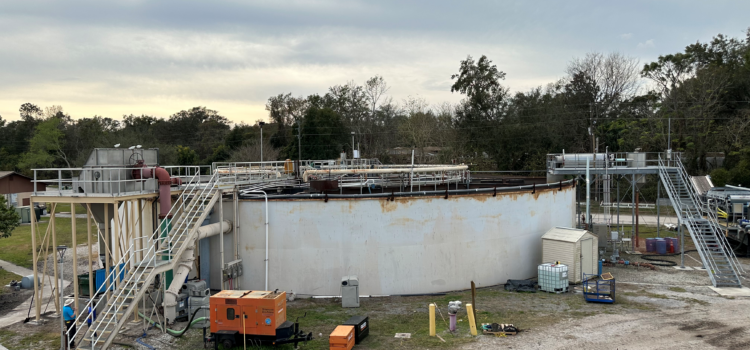
The City requested a comprehensive review of the sufficiency of water, sewer, and reclaimed water user rates to provide revenue for operations and capital improvements. As the City is engaging in a significant sewer capital upgrade and reinvestment program over the next few years which will require a focus on obtaining funding for the projects and setting the rates to support the capital program and potential new debt service payments. Raftelis Financial Consultants conducted the study with close support and cooperation by the City’s staff and engineering consultants. This presentation will discuss the development of the study, results and recommendations to the City and Commission.

Hello, Winter Springs residents!
Our city recently underwent another audit, and as part of my commitment to transparency and accountability, I want to help you make sense of the findings and what they mean for us all. Below, I’ve summarized the key issues and recommendations made in the audit.
Regulatory Violations: The Florida Department of Environmental Protection (FDEP) has identified multiple violations at both of the City’s wastewater reclamation facilities, East WRF and West WRF. These range from unauthorized wastewater discharges to inoperable wastewater treatment systems.
Financial Implications: Violations have led to civil penalties that the City must either pay or invest in pollution prevention projects. As of June 2023, a total of $318,372 has been incurred in costs and penalties, which impacts the City’s financial standing.
Operational Challenges: The City has taken steps to correct some of these violations, but the continued occurrence of problems indicates systemic issues that need to be addressed. There’s also the potential risk of reputational damage and lawsuits.
City Recommendation: To comply with the audit’s recommendations, the City should work on immediate corrective actions to ensure that all FDEP rules are strictly followed. This could involve a detailed review of the contractor’s operational protocols, the condition of equipment, and compliance with federal and state regulations. Urgent training for the personnel may also be essential.
Monitoring and Oversight: The City’s delayed actions in contracting an independent engineering firm for auditing the water utility contractor’s performance might have contributed to the issues identified in Finding 1.
Operational Inefficiencies: The findings from the engineering firm’s delayed report highlight issues like ineffective communication protocols and outdated utility facilities that require attention.
Contractual and Regulatory Compliance: Without effective monitoring, the City cannot ensure that the contractor is in full compliance with the terms of the contract or state laws and rules.
The City should establish robust policies and procedures for regular oversight of the contractor’s performance. Annual, if not more frequent, evaluations by an independent engineering firm should be made mandatory, as per the contract terms. The City should also facilitate a transparent and prompt communication system with the contractor to resolve any operational issues swiftly.
The City received sales surtax collections for infrastructure projects but diverted these funds to projects that were not initially approved or discussed publicly. The lack of transparency and public discussion regarding project reallocations could erode public trust.
Reallocated Funds: City Commission approved the reallocation of $12.8 million from originally proposed projects to other ventures without individual discussion in publicly noticed meetings.
Unaccounted Funds: $2 million transferred from the Road Improvements Special Revenue Fund to the Water and Sewer Utility Fund did not have separate accounting, making it unclear if the funds were used for approved projects.
Public Trust: Changes in project lists and expenditure may not align with public expectations set at the time of the sales surtax referendum.
Transparency: Inclusion of significant sales surtax reallocations in the City Commission’s consent agenda reduced transparency and deprived the public of the opportunity for discussion.
Include items with significant financial impacts, like the infrastructure sales surtax, as discussion items in the agenda rather than consent agenda items.
Expend sales surtax collections in a manner consistent with public expectations.
Provide separate accounting for transferred sales surtax collections to other City funds.
According to the State’s Sunshine Law and City resolution, the City of Winter Springs is obligated to provide public records upon request, potentially charging a reasonable fee if the request demands extensive resources. However, the City’s practices are inconsistent with these requirements, as evidenced by an audit of 217 public records requests received between October 1, 2021, and December 31, 2022.
Response Time: The City took an average of 29 business days to fulfill 38 requests, attributing the delays to factors like staff schedules and official City business. However, no standard time frame for request completion exists, and requestors were not notified of delays.
Cost Estimation: Six requests were priced between $21 and $3,895 based on estimated labor costs, but no record was kept to justify these estimates. As a result, the requesters did not proceed with payment.
Lack of Transparency: City personnel could not provide documentation to support how cost estimates were calculated. Additionally, no policies exist for tracking the actual time spent on fulfilling public records requests.
Public Trust: The City’s current practices could erode public trust and compromise transparency.
Legal Compliance: The lack of documentation and guidelines may result in non-compliance with State laws concerning public records.
Establish a standard time frame for fulfilling public records requests and notify requesters if delays are expected.
Require that documentation be maintained to justify the estimated and actual costs for fulfilling requests requiring extensive resources.
The City ordinances mandate that all purchases must adhere to uniform purchasing policies established by the City Manager. However, these uniform policies were not available during the audit period, and multiple instances of non-compliance with ordinances and transparency issues were noted.
City Ordinance Requirements: City ordinances require uniform purchasing policies and procedures established by the City Manager. Purchases less than $50,000 can be authorized by the City Manager, while those above require City Commission approval.
Absence of Uniform Policies: Despite requests, City personnel failed to provide the auditors with written uniform purchasing policies as required by the City ordinance.
Discrepancies and Exemptions: There were instances where competitive processes were not followed, such as:
High Vendor Payments: From October 1, 2021, to September 30, 2022, the City made payments totaling $15.7 million to 59 vendors. Issues were found in purchases totaling $4.9 million from 14 vendors.
Transparency and Fairness: Due to the absence of defined policies, there were instances of unfair and non-transparent procurement processes.
Policy Formation: The City Manager should establish written uniform purchasing policies and procedures as mandated by the City ordinance.
Transparency and Compliance: The City should ensure that all purchases adhere to the new policies and procedures, ensuring that the procurement process is transparent and in accordance with City ordinances.
Competitive Selection: Incorporate a clearly defined process for competitive selection in the policies, which should include a pricing component when applicable.
Monitoring and Audit Trails: The new policies should include a mechanism for monitoring and auditing procurement activities for compliance and effectiveness.
Clarity on Exemptions and Definitions: Clearly define terms such as “professional services” and stipulate the criteria for exemptions from competitive processes.
The City’s audit report on Purchase Cards (P-cards) reveals that while P-cards can serve as a convenient tool for making business-related purchases, they are vulnerable to fraud and misuse. The audit identifies the lack of comprehensive written policies and procedures that should govern the use of these cards. The report emphasizes the importance of internal controls to ensure accountability, especially given that $347,590 was spent through P-cards by 36 City employees between October 1, 2021, and December 31, 2022.
Lack of Comprehensive Policy: City personnel confirmed that there are no comprehensive P-card policies in place. The existing guidelines are limited to what is outlined in a cardholder agreement that each user must sign.
Basic Guidelines Exist but Are Insufficient: A cardholder agreement outlines fundamental aspects like the responsibility for the card, pre-approval of expenditures, and submission of receipts. However, these are not considered comprehensive policies.
Old City Commission Resolution: City personnel provided a City Commission resolution from 2004 that has elements of a P-card policy, but it is not adequate for current needs.
No Documented Supervisory Pre-Approval: Although the cardholder agreement mandates pre-approval of expenditures through managerial supervision, City records showed no evidence that any of the P-card expenditures were pre-approved. The process is verbal, and there is no written record.
Increased Risk of Fraud or Misuse: In the absence of effective controls and policies, there’s an increased risk that unauthorized or inappropriate expenditures could go undetected. The audit did not find any such expenditures, but the risk remains.
Establish Comprehensive Policies: The City should develop a comprehensive written policy that provides guidelines on all significant aspects of P-card usage. This should include, but not be limited to, acceptable uses, vendor types, single purchase limits, daily and monthly limits, and supervisory approval processes.
Document Pre-Approval: In line with the existing cardholder agreement, the City should document the required supervisory pre-approval for each P-card expenditure to reinforce accountability and transparency.
Periodic Reviews: To ensure compliance and detect any unauthorized or inappropriate usage promptly, the Finance Department should conduct periodic reviews of P-card transactions against the established policies.
Finding 7 highlights the challenges arising from significant turnover in key management positions in the City from April 2019 to February 2023. Frequent turnover, especially in critical roles like the City Manager and Finance Director, poses risks to the consistency and effectiveness of internal controls and policy application. The report notes negative workplace environment allegations and Commission interference as some of the factors contributing to the turnover. The issue has had cascading effects, leading to delays in financial audits and substantial unpaid invoices.
High Turnover in Key Positions: Roles such as the City Manager, Finance Director, Chief of Police, and Directors of Public Works and Community Development have seen multiple resignations over a relatively short period.
Negative Workplace Environment: Some personnel who resigned cited issues such as a hostile work environment and questioning of loyalty by Commissioners.
Commission Interference: Instances of Commission interference with City staff were noted. Training to prevent such interference is now part of the City Commissioners’ onboarding process.
Financial and Operational Consequences: The turnover has led to delays, including the incomplete fiscal year 2021-22 financial statement audit, and significant unpaid invoices totaling $1.2 million, affecting the City’s contractual obligations and finances.
Loss of Institutional Knowledge: The frequent changes in leadership have resulted in a loss of critical institutional knowledge, affecting the oversight, application of City policies, and possibly leading to control deficiencies and non-compliance.
City Commission Training: Continue and possibly intensify the training sessions for City Commissioners during their onboarding process, focusing on the importance of non-interference with City staff, as mandated by the City Charter.
Positive Work Environment: Develop and implement policies that actively foster a positive work environment. This could include initiatives aimed at employee well-being, transparent communication channels, and mechanisms for anonymous feedback.
Retention Strategies: Consider creating retention strategies for key management positions, such as competitive compensation packages, opportunities for career development, and offering exit interviews to understand the reasons behind resignations.
Audit Completion and Invoice Settlement: Prioritize the completion of pending audits and settlement of unpaid invoices. This may require interim staffing solutions or external assistance.
Policy Review: Conduct a thorough review of current internal controls and procedures to identify any gaps or inefficiencies that may have arisen due to the turnover. Implement changes as needed to ensure consistent policy application and effective operations.
The City has been given recommendations on how to address these issues, and it’s crucial the city respond to ensure these changes are implemented for the betterment of our community. I’ll keep you updated on developments as they happen.
If you have any questions or want to discuss this further, feel free to reach out. Together, we can build a stronger, more transparent Winter Springs.
Best,
Victoria For Winter Springs
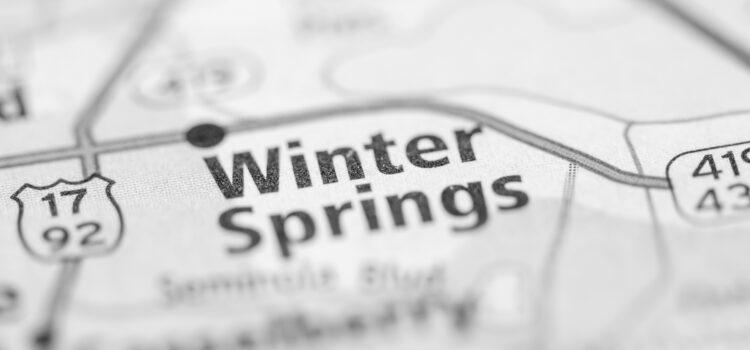
Residents of Winter Springs,
Here is an update from Bilal Iftikhar, the Director of Utilities regarding the concerns of the Water Distribution System in Winter Springs:
We understand that recent boil water alerts and concerns related to our water distribution system have caused inconvenience and frustration for many of our valued residents. We want to assure you that we are fully committed to addressing these issues to ensure the safety and reliability of our water supply.We empathize with the hardships this has caused for you and your families.
1. What does the City currently have in reserve for the express use of equipment replacement at the end of it’s expected useful life?
The City currently has reserves of approximately $16 million. This was recently presented as part of the proposed budget/rate study for water/wastewater utilities in the coming years with a budget of $166 million. Along with the proposed rate increase, the City anticipates taking SRF (state revolving fund loans) and utilizing much of the existing reserves in order to push forward with necessary projects, with the most significant being development of two new wastewater treatment facilities (as the current wastewater treatment facilities are well beyond there useful life). Note we are also seeking grants where possible, but these are often project specific and limited in nature. The City also currently has $18 million in ARPA funds which are anticipated in this budget.
2. When did the City most recently engage with a third party firm that is capable of performing a full engineering study on the City’s water supply infrastructure?
The most recent engineering contract was established in 2021, which was a reselection of the City’s on-call engineering consultants. Specific to water/wastewater, the initial focus of this contract was the treatment facilities. At that time, the primary needs surrounded potable water quality with improvements at water plant #1. On the wastewater side, urgent repairs and replacement of the two aging/failing wastewater treatment plants were the major focus. Additional items also included lift station rehabilitation, reclaimed system expansion, and reliability projects such as backup generators. The City also engaged engineering consultants to develop a wastewater/reclaimed master plan to identify system need, which helped to create much of the currently established Capital Improvement Program (CIP).
Since I joined the City, which was only about 5 months ago, I have established a plan for our wastewater treatment facilities, the next step will be to focus on the collection and distribution system piping. Primarily, given the continuing failures in the potable system, we plan to focus on the potable distribution system in 2024. Our goal is to begin a City-wide look at the potable water system assets, including a valve assessment program and pipeline prioritization for future repair/replacement. With more than 150 miles of water main, this will take time to accomplish, and improvements will require funding. We have already established needs for some pipeline replacement, but we expect more recommendations will come out of these analyses. For this reason, our proposed budget carries an annual pipeline replacement line item. Even with the increase, funds are limited and repairs and replacements will have to be planned strategically.
3. What are the current approved and funded plans for replacement of aged, defective and inoperable equipment including water treatment plants, potable water supply lines, sewer return lines, lift stations, pumping station, etc.?
The City has recently established an updated Capital Improvement Program (CIP) for utilities. This identified numerous projects including two new wastewater treatment plants, lift station replacements, and other collection system improvements. On the potable side, this includes further optimization of the treatment processes, reliability improvements, water main assessment, valve and water main replacements. A copy of the current CIP is attached for your reference. Please note this CIP list is not final, and we will continue to update information as we determine necessary projects (such as water main replacements). Related to the CIP, please note that we recently conducted and presented a rate study based on our proposed CIP to the commission. The rate study proposes significant rate increases in the coming years in order to fund the proposed CIP. However, the rate increases are not yet approved.
Since joining the City, my goal is to remain very open to our community with our goals and plans to improve upon the City’s water/wastewater infrastructure. However, the expected projects are not a simple undertaking. Completion of these projects to improve the City will take many years and require the funding to pay for them. This will require the support from our City leadership and citizens.
Additional comments on recent main breaks:
I noted some concerns about the recent water main breaks. Remaining open in our communication, I’m providing you with some information below:
First, I’m sorry that our residents have to deal with the breaks and the inconvenience that goes along with these breaks, such as low pressure and boil water alerts. I can assure you we are also concerned with the recent continued water main breaks which have occurred. Please note there are a variety of reasons for the system breaks, and each of the recent breaks have occurred for different reasons, varying from nearby structures inducing a failure to fiber contractors drilling through the pipe. A few of the many factors which can lead to breaks include:
We believe some more recent failures may still be related to flooding impacts from last year, in particular with settlement/movement which could add to pipeline stress/loading.
We as a City are not alone, and unfortunately, every utility will experience main breaks. With that said, the City recognizes that there are areas of the City which were originally developed with pipeline which is more likely to break than other materials. We will remain focused on these items, but again, please understand that this will take time and will require funding to accomplish.
Thank you for your patience, understanding and support as we plan and then work though this crucial endeavor. We are committed to making the necessary improvements, and we are confident that, with your support, our water distribution system will be better than ever.
Sincerely,
Bilal Iftikhar

Recently it was discovered that a toxic industrial chemical, 1,4-dioxane, had been found to have infiltrated the Floridan Aquifer, our region’s source of drinking water.
On July 31, 2023, Winter Springs sampled its potable water systems within the City for traces of 1,4-dioxane.
Water samples were taken from all three Winter Springs Water Treatment Plants at the wells and from the points of entry(POE) and sent to a lab for analysis.
On August 11, 2023, the City received the results from the lab and was informed that the levels were found to be non-detectable (ND).
https://www.winterspringsfl.org/publicworks/page/14-dioxane
The presence of the contaminating chemical, 1,4-dioxane, has been found in water across Seminole County, Lake Mary and Sanford for years. It has been widely used in laboratory and manufacturing processes and has been a byproduct of chemicals used in personal care products, laundry detergents and food.
Health advisory levels for 1,4-dioxane are set at 0.35 parts per billion in groundwater, surface water and soil and are regulated by the Florida Department of Environmental Protection.
Levels of 1,4-dioxane at Seminole County’s Markham Regional Water Treatment Plant have averaged 0.18 parts per billion, roughly half of the EPA’s health advisory, officials said.
Currently, 1,4-dioxane is not federally regulated by the EPA’s Office of Groundwater and Drinking Water. Though, it has been included in the list of proposed chemicals to be federally regulated by the EPA in the future.
The current EPA Health Advisory Level (HAL) for 1,4-dioxane is 0.35 micrograms per liter (µg/L) considering an acceptable cancer risk of 1 in a million. 0.35 µg/L is the equivalent of approximately 5 filled shot glasses (7.5 oz) added to approximately 150 million gallons of water.
Drinking water at or below the HAL for a lifetime is not expected to cause any increased harmful health effects.
The EPA Health Advisory Level of 0.35 ug/l is not a promulgated Maximum Contaminant Level (MCL) that is enforceable. The EPA is “continuing to evaluate for MCL” with no indication of timing.
As for Florida, the Florida Department of Environmental Protection (FDEP) enforces state regulated levels for 1,4-dioxane in groundwater. The Florida Administrative Code identifies a Groundwater Cleanup Target Level (GTCL) of 3.2 ug/L in groundwater that is enforceable.
1,4-dioxane and PFAS’s regulation continues to evolve from a regulatory standpoint and is much closer to having associated Federal enforceable Maximum Containment Level (MCL).

Download PDF: https://victoriaforwintersprings.com/wp-content/uploads/2023/08/final-faq-14dx.pdf
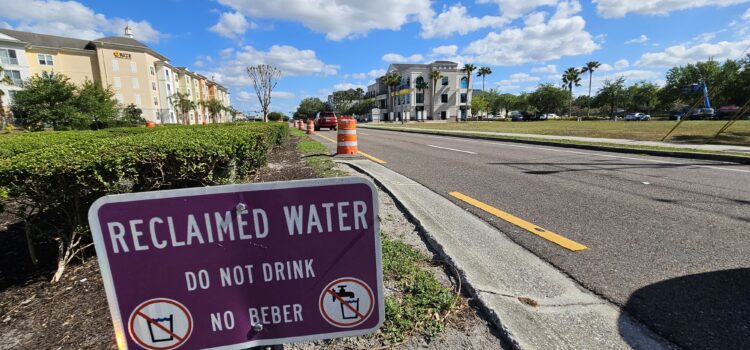
Recently, the RCW (reclaimed water system) has experienced service pressure issues and low pressure has been experienced by some City residents. Florida’s weather pattern typically experiences increased temperatures in the March or April months and the consistent summer rains start between May and June. This year, the consistent summer rains typically experienced between May and June, have not occurred. The result is warmer, dryer conditions and increased RCW demand for landscape irrigation.
The City’s RCW system has a finite amount of water available every day. This is due to the water reclamation facilities treating the amount of wastewater that is received. During these few days, if the RCW demand exceeds the amount of wastewater received, there is a water volume deficit. To mitigate the effects, RCW water is pumped from where water is available to where it is needed during non-irrigation (daylight) hours. During this process, some customers may experience lower than normal RCW pressures. In some instances, it has required a longer time frame than the non-irrigation hours in order to transfer a sufficient volume of RCW water for the anticipated RCW demand. However, RCW has typically been available during permitted (night time) irrigation hours. The extra effort to mitigate the effects will likely continue until the more typical summer rains return and RCW irrigation demand subsides.
Until normal rains return, all customers can do their part to support the RCW system. During this time of year, irrigation is permitted two days per week during nighttime hours as posted on the City’s website. Customers can minimize the amount of time per irrigation zone, which reduces demand and saves money on their utility bill. Rain sensors installed on irrigation systems detect when rain has occurred and will delay irrigation when it is not needed. These efforts by everyone conserves precious water resources for customers and the environment.
We are continuing to work on a few improvements that may help with the pressure.
| Time of the Year | Odd-Numbered Addressor No Address | Even-Numbered Address | Nonresidential Properties |
| Daylight Saving Time | Wednesday/Saturday | Thursday/Sunday | Tuesday/Friday |
| Eastern Standard Time | Saturday | Sunday | Tuesday |
These rules apply if you are using potable water or a private well for irrigation. If you have reclaimed water for irrigation, then you may water two days per week year-round.

As a valued resident of Winter Springs, it’s essential for you to be informed about the quality of the drinking water supplied to our community. We’re pleased to share the recent findings and updates about our commitment to ensuring optimal water quality.
Currently, Winter Springs meets all the EPA Standards for Federal Drinking Water. For your reference, the following contaminants were all detected at levels below the regulatory limit, also referred to as the Maximum Contaminant Level (MCL):
» Barium » Nitrate (as N) » Fluoride » Sodium
» Lead » Copper » Cis-1,2-Dichloroethylene » Dalapon
» Chlorine » Total Trihalomethanes (TTHMs) » Haloacetic Acids (HAA5)
These regulations, prescribed by the Environmental Protection Agency (EPA), are in place to ensure that the tap water you consume is safe. In addition to the MCL, it’s worth noting the Maximum Residual Disinfectant Level (MRDL) – this is the highest level of a disinfectant allowed in drinking water.
This upcoming meeting will focus on a myriad of service optimizations:
The City of Winter Springs is consistently looking for ways to further improve our potable water quality and aesthetics. In line with this commitment, we are collaborating with Carollo Engineers, Inc. to provide advanced technical support in several areas:
This intensive project includes both hands-on field sampling and a thorough desktop analysis of historical data. We are investing a total of $194,244.66 into this initiative, reaffirming our dedication to delivering the highest water quality standards.
We appreciate your trust in our services and remain dedicated to ensuring Winter Springs has access to clean, safe, and high-quality drinking water. For more detailed insights, please feel free to explore the embedded presentations or contact our me for more information.
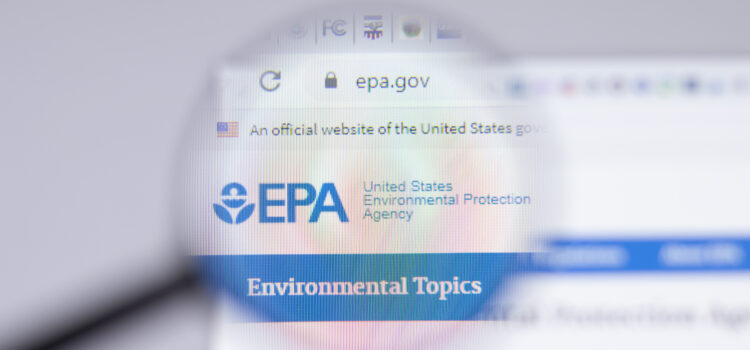
There is currently no federal mandate to regulate public water systems to test for PFAS chemicals or take steps to filter them out of their supplies before it reaches consumers.
On March 14, 2023, EPA announced the proposed National Primary Drinking Water Regulation (NPDWR) for six PFAS including perfluorooctanoic acid (PFOA), perfluorooctane sulfonic acid (PFOS), perfluorononanoic acid (PFNA), hexafluoropropylene oxide dimer acid (HFPO-DA, commonly known as GenX Chemicals), perfluorohexane sulfonic acid (PFHxS), and perfluorobutane sulfonic acid (PFBS).
The limits, known as maximum contaminant levels, or MCLs, are the highest level of a contaminant that is allowed in drinking water. The new MCL requires water treatment plants to lower PFOA, PFOS, PFNA, PFHxS, PFBS and GenX to much safer levels than currently exist in water systems.
These are just six of the forever chemicals known as PFAS, a large family of fluorinated chemicals that are persistent, bioaccumulative and toxic. Even at low levels, they have been linked to cancer, reproductive harm, immune system damage and other serious health problems. The EPA has known about the risks from PFAS at least since the 1990s.
PFAS are man-made chemicals that have been used in industry and consumer products worldwide since the 1940s. They have been used to make nonstick cookware, water-repellent clothing, stain resistant fabrics and carpets, some cosmetics, some firefighting foams, and products that resist grease, water, and oil.
The proposed PFAS NPDWR does not require any actions until it is finalized. EPA anticipates finalizing the regulation by the end of 2023.
EPA expects that if fully implemented, the rule will prevent thousands of deaths and reduce tens of thousands of serious PFAS-attributable illnesses; cancer, liver damage, decreased fertility, and increased risk of asthma and thyroid disease.
PTFE, best known by the brand name Teflon™, is typically made using several hazardous PFAS (per- and polyfluorinated alkyl substances) that have polluted drinking water across the globe.
PFAS have been found in some brands of bottled water. The Food and Drug Administration (FDA) has not put enforceable limits in place yet.